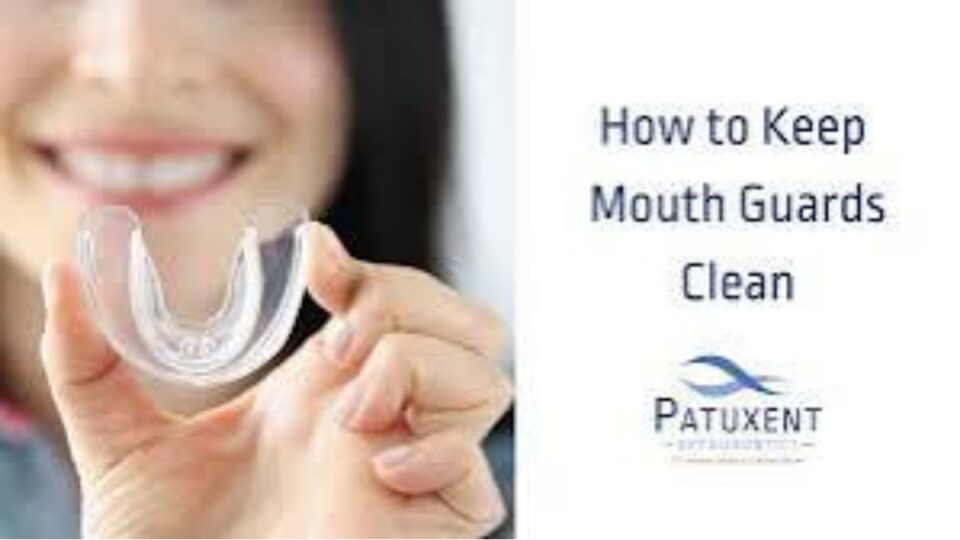Introduction
If you use a mouthguard—whether for sports, teeth grinding (bruxism), or orthodontic reasons—keeping it clean is essential. A mouthguard sits directly in your mouth for hours, which makes it a breeding ground for bacteria, plaque, and even mold if not cleaned properly. That’s why learning how to disinfect mouthguard effectively is so important. A clean mouthguard not only protects your oral health but also makes wearing it more comfortable and fresh.
In this guide, we’ll walk you through step-by-step methods, recommended cleaning products, and the best practices to keep your mouthguard safe, hygienic, and long-lasting.
Why Disinfecting Your Mouthguard Matters
A mouthguard may look harmless, but it can quickly accumulate:
- Bacteria and germs that lead to bad breath and infections
- Plaque buildup that increases your risk of cavities
- Foul odors and discoloration from saliva and food particles
Neglecting to disinfect it properly can lead to oral infections, gum disease, or even damage to your guard. Just rinsing with water isn’t enough—you need proper cleaning techniques to kill bacteria and maintain freshness.
Best Methods on How to Disinfect Mouthguard
1. Daily Cleaning Routine (Basic Care)
After each use:
- Rinse the mouthguard under lukewarm (not hot) water.
- Use a soft toothbrush and mild, non-abrasive soap to scrub.
- Rinse thoroughly before storing in a ventilated case.
This prevents bacteria from building up between uses.
2. Deep Cleaning (Weekly Disinfection)
To keep your mouthguard fully sanitized, you should disinfect it at least once a week. Here’s how:
- Mouthwash Soak: Mix equal parts of alcohol-free mouthwash and water. Soak your guard for 10–15 minutes.
- Denture Cleaner: Use tablets like Efferdent or Polident. Drop one into warm water and soak your guard for the recommended time.
- Hydrogen Peroxide + Water: Combine in equal parts and soak for 10 minutes to kill bacteria effectively.
Tip: Never use hot water—it can warp the plastic and ruin your custom fit.
3. Natural Cleaning Alternatives
If you prefer non-chemical cleaning methods:
- Baking Soda Paste: Mix with water to form a paste and gently brush.
- Vinegar Soak: Soak your mouthguard in white vinegar for 30 minutes, then rinse thoroughly.
These methods are effective and safe for sensitive users.
Comparison of Cleaning Methods
| Cleaning Method | Effectiveness | Frequency | Notes |
| Brushing with Soap | Good | Daily | Prevents buildup |
| Mouthwash + Water Soak | Very Good | Weekly | Use alcohol-free mouthwash |
| Denture Cleaning Tablets | Excellent | Weekly | Removes stains & odor |
| Baking Soda Paste | Good | Weekly | Gentle & natural |
| Vinegar Soak | Good | Monthly | Strong odor if not rinsed well |
Storage and Handling Tips
Cleaning your mouthguard is only half the job—proper storage matters too:
- Always store in a ventilated case to prevent moisture buildup.
- Never leave it in your gym bag or car where heat and bacteria thrive.
- Replace your case every few months, as it can also harbor bacteria.
Common Mistakes to Avoid
- Using boiling water (can warp the mouthguard).
- Storing while still wet.
- Using toothpaste (abrasive and may scratch the surface).
- Forgetting to wash your hands before handling.
Final Thoughts
Knowing how to disinfect mouthguard correctly is the key to keeping it safe, fresh, and effective. By combining daily cleaning with weekly deep disinfection, you’ll protect your oral health and extend the lifespan of your guard.
Remember: a clean mouthguard means a healthy smile!
FAQs on How to Disinfect Mouthguard
1. How often should I disinfect my mouthguard?
Light cleaning should be done daily, while deep disinfection is recommended once a week.
2. Can I use toothpaste to clean my mouthguard?
It’s not recommended—most toothpastes are abrasive and can scratch the material.
3. How long does a mouthguard last with proper care?
With regular cleaning, a custom mouthguard can last 6 months to 2 years, depending on usage.
4. Is soaking in mouthwash safe?
Yes, but use alcohol-free mouthwash. Alcohol-based versions can dry out and damage the material.
5. What’s the best quick method if I’m traveling?
Carry a travel-size alcohol-free mouthwash or denture tablet. Quick soaks are better than skipping cleaning.

